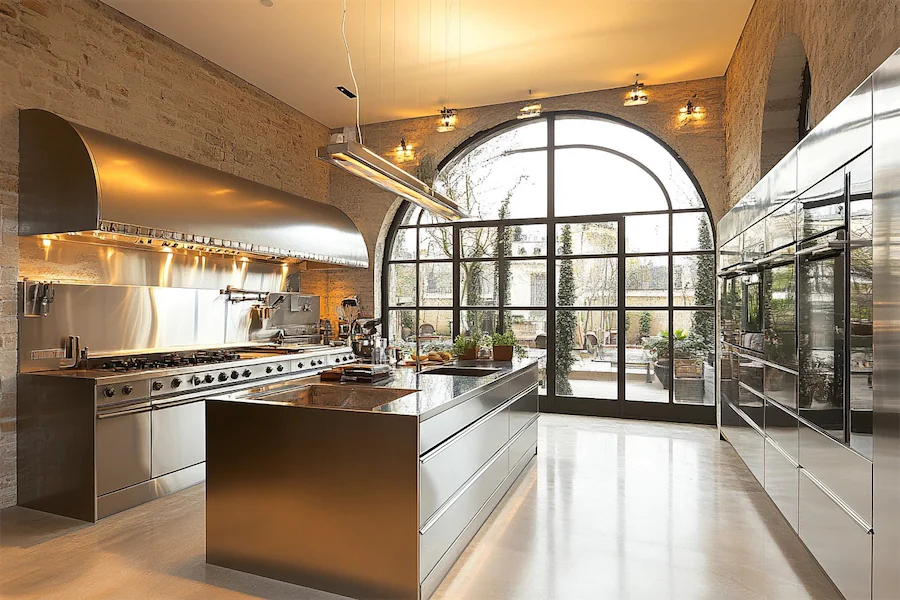A metal kitchen embodies modernity and durability, offering a sleek and functional space that aligns with contemporary design trends.
Key Features of Metal Kitchens
- Sleek Aesthetics: Metal surfaces, particularly stainless steel, provide a clean and polished look, enhancing the kitchen’s modern appeal.
- Durability: Metals like stainless steel are resistant to heat, stains, and corrosion, ensuring longevity and ease of maintenance.
- Hygiene: Non-porous metal surfaces are easy to clean and disinfect, making them ideal for maintaining a sanitary kitchen environment.
Applications of Metal in Kitchens
- Cabinetry: Metal cabinets, often made of stainless steel, offer a contemporary alternative to traditional wood, providing a sleek and industrial look.
- Countertops: Metal countertops, particularly stainless steel, are favored in professional kitchens for their durability and ease of cleaning.
- Backsplashes: Metal backsplashes add a reflective quality, enhancing light and contributing to a modern aesthetic.
Considerations When Designing a Metal Kitchen
- Integration with Other Materials: Combining metal with materials like wood or glass can soften the industrial feel and add warmth to the space.
- Maintenance: While metal surfaces are generally easy to clean, they can show fingerprints and scratches; selecting finishes that minimize these issues is advisable.
- Cost: High-quality metal installations can be more expensive than traditional materials; budgeting accordingly is essential.
Conclusion
Incorporating metal elements into your kitchen design can create a sleek, durable, and hygienic space that aligns with modern design trends. By thoughtfully integrating metal with other materials and considering factors like maintenance and cost, you can achieve a balanced and functional kitchen environment.
